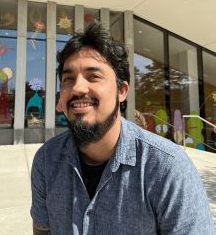
 back to all news
back to all news
Inventing tomorrow: Thiago Gonçalves-Souza

Thiago Gonçalves-Souza is an assistant research scientist at the University of Michigan School for Environment and Sustainability (SEAS). A a quantitative community ecologist, he works in SEAS’ Institute for Global Change Biology. We asked him to share more about his work in this brief Q&A.
What is your research focused on?

My research focuses on understanding how human activities, such as habitat loss and fragmentation, impact biodiversity and ecosystem functioning. I use quantitative tools to study the effects of anthropogenic changes on species distributions, functional traits and ecosystem services, with a broad taxonomic scope ranging from arthropods to mammals. I also investigate the role of functional traits in predicting species responses to environmental changes and explore the potential of natural predators in biological pest control.
What is the impact of this research?
My research provides critical insights into the consequences of habitat fragmentation and loss, showing that fragmented landscapes significantly reduce biodiversity. It will probably help resolve a long-standing debate in conservation biology by demonstrating that large, continuous forests represent the best approach to protect biodiversity. Additionally, my work highlights the importance of functional traits in understanding species responses to environmental changes and underscores the potential of natural predators in sustainable pest management, offering solutions for biodiversity conservation and ecosystem restoration in human-modified landscapes.
More about Gonçalves-Souza’s work:
Want to preserve biodiversity? Go big, U-M researchers say
https://thiagocalvesouza.wixsite.com/ecofun
Learn more about SEAS research scientists:

